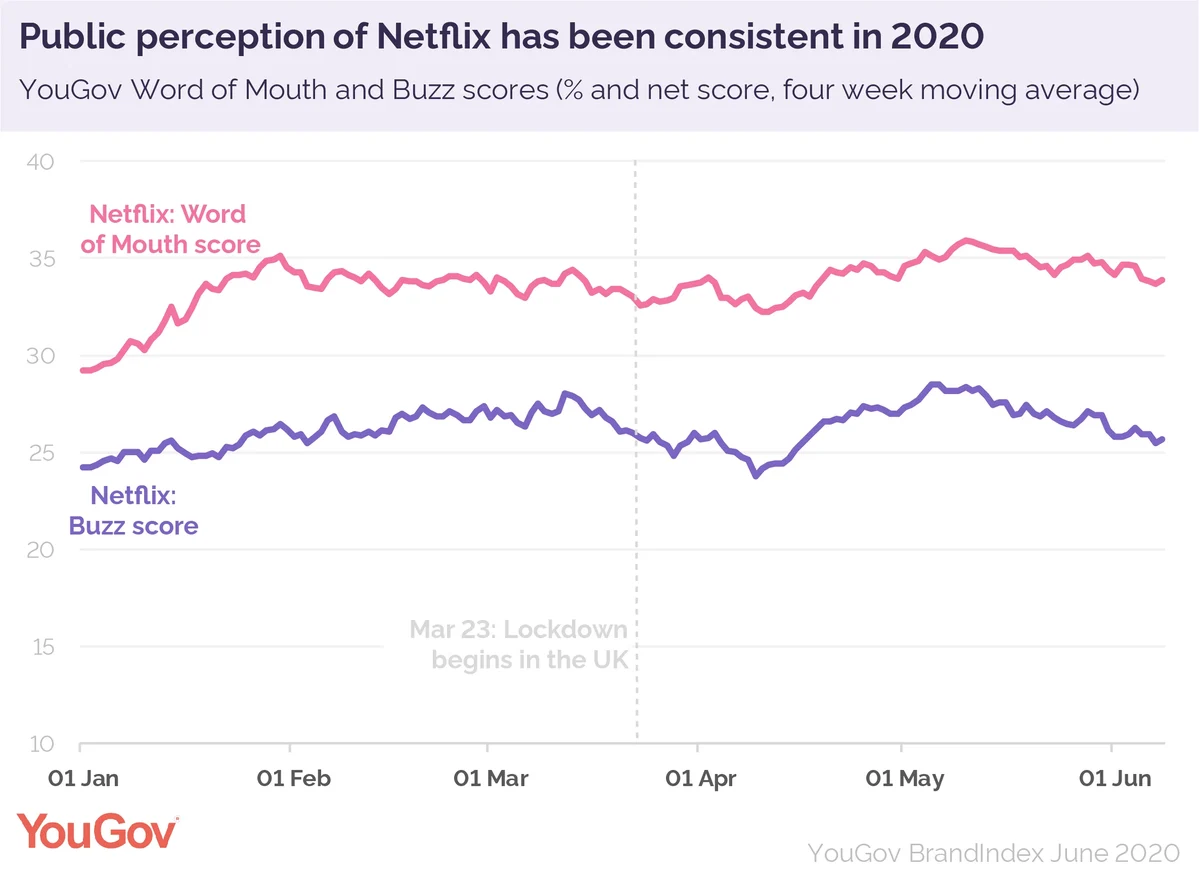Are Britons looking for entertainment or information, while stuck at home during the COVID-19 pandemic?
With Britons still mostly stuck at home due to the COVID-19 lockdown restrictions, how have the traditional television and radio sectors fared against streaming services? And as lockdown begins to ease and the weather improves, what does the future hold?
How have opinions of radio and TV changed?
Comparing the first 23 weeks of 2020 to the same period in 2019, we can see that consumption of media by Brits has not changed drastically during COVID-19 lockdown (which started on March 23rd).
While the sector as a whole has not showed much variation over time, how are the major streaming services performing during lockdown? Looking at the leading streaming apps, Netflix and Amazon Prime, both are preforming better than they were at this point in 2019 and seem to have benefited from lockdown.
Netflix has also continued improving its number of viewers during the course of the lockdown, with the number of adults who have watched Netflix in the past 30 days rising four percentage points from 49.1% to 53.1%. Compared to 2019 the brand is also performing well, with a 12 percentage point boost in early June 2020, year-on-year.
Elsewhere Amazon Prime has not added quite as many customers as Netflix since the lockdown, but has seen an improvement of 9.6 percentage points in the 12 months to early June 2020.
Is COVID-19 driving a greater interest in the news?
Looking elsewhere, BBC News has also seen a distinct boost in viewers compared to this time last year, as well as other improvements in its BrandIndex metrics. Viewership has peaked for the channel at 51.3% in early May, up from 44.1% on March 23rd when lockdown began.
The peak also represents a 7.2 percentage point increase compared to the same point in 2019, and since that week BBC News viewing has been consistently higher than last year - possibly as Britons tune in for the daily coronavirus press conferences.
Where have these new viewers come from? Our data shows that it’s younger Britons viewing news channels more than they did at the start of the year. Comparing current viewers for news channels between January and April shows that among Britons aged 18 to 24, those viewing news channels has risen six percentage points from 18% to 24%, and among the middle age group (ages 35 to 49) current viewers of news channels has risen from 24% to 32%.
How has public perception of BBC News changed?
#DefundTheBBC has been trending on Twitter recently, but is this a true reflection of public attitude towards the broadcaster?
Buzz and Word of Mouth scores for BBC News had also seen improvements, however Buzz seems to have declined steadily in recent weeks. At the beginning of the year Buzz score for BBC News was largely negative, but as coronavirus started to make headlines in early March (around week 10 of the year) the channels score began to climb, peaking at 10.4 in mid-April.
However, the brand’s Buzz score slipped and has declined heavily to levels below that of 2019, but remains higher than the start of 2020 for now. Mid-April saw the announcement that the initial three-week lockdown was to be extended, as well as grim milestones for the number of deaths in the UK - such negative news could explain the turning point for the brand’s buzz score.
Word of Mouth score however has risen during the pandemic, and has remained between 8 and 6 percentage points higher than the beginning of the year, peaking at 17.5% in mid-April.
Comparing the most recent data point to the same time in 2019, Word of Mouth score for BBC News is 6.4 percentage points higher than last year at 15.7%.
How has perception of Netflix changed?
In comparison to BBC News which has seen a great deal of variation in its perception BrandIndex metrics, Netflix has maintained a fairly consistent but highly positive Buzz and Word of Mouth score.
Both metrics saw slight positive changes in mid-April, with Buzz rising to 28.5% in early May and Word of Mouth score peaking at 35.9% around the same time. Both of these changes could well be due to the Brands release of its “Tiger King” series in late March which were wildly popular with UK audiences and the announcement that Michelle Obama’s documentary would also be available on the platform.


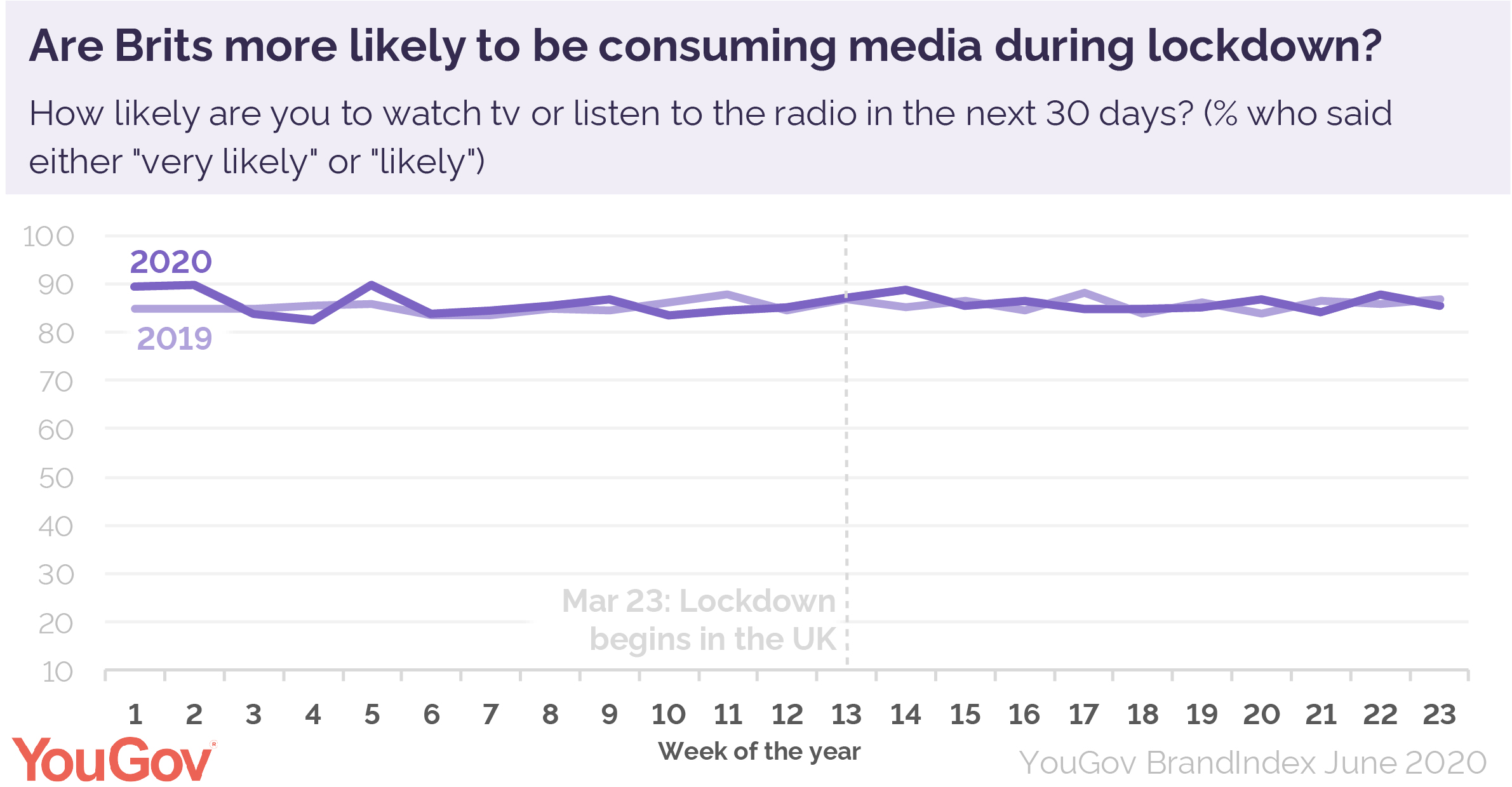 Click to englarge
Click to englarge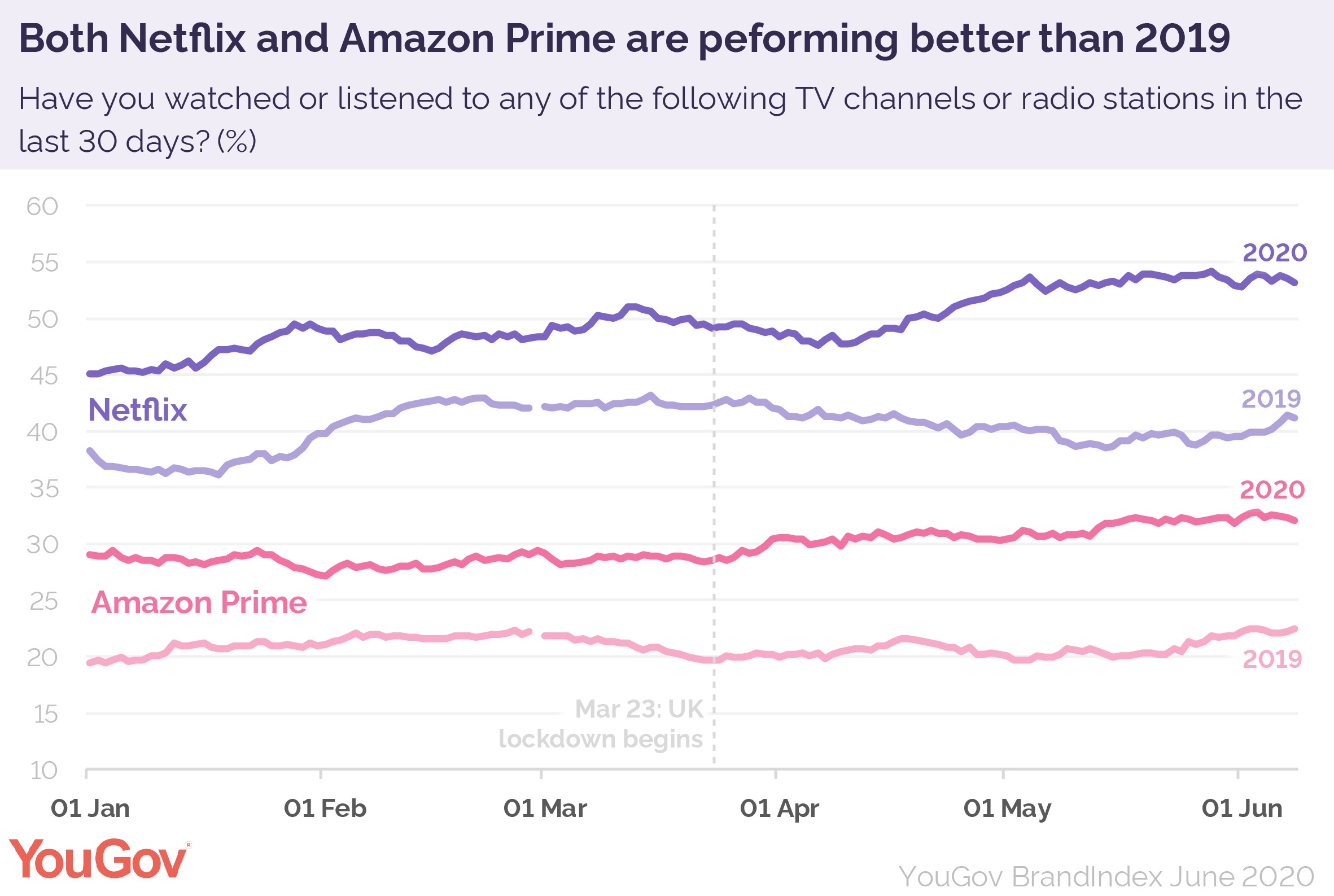 Click to enlarge
Click to enlarge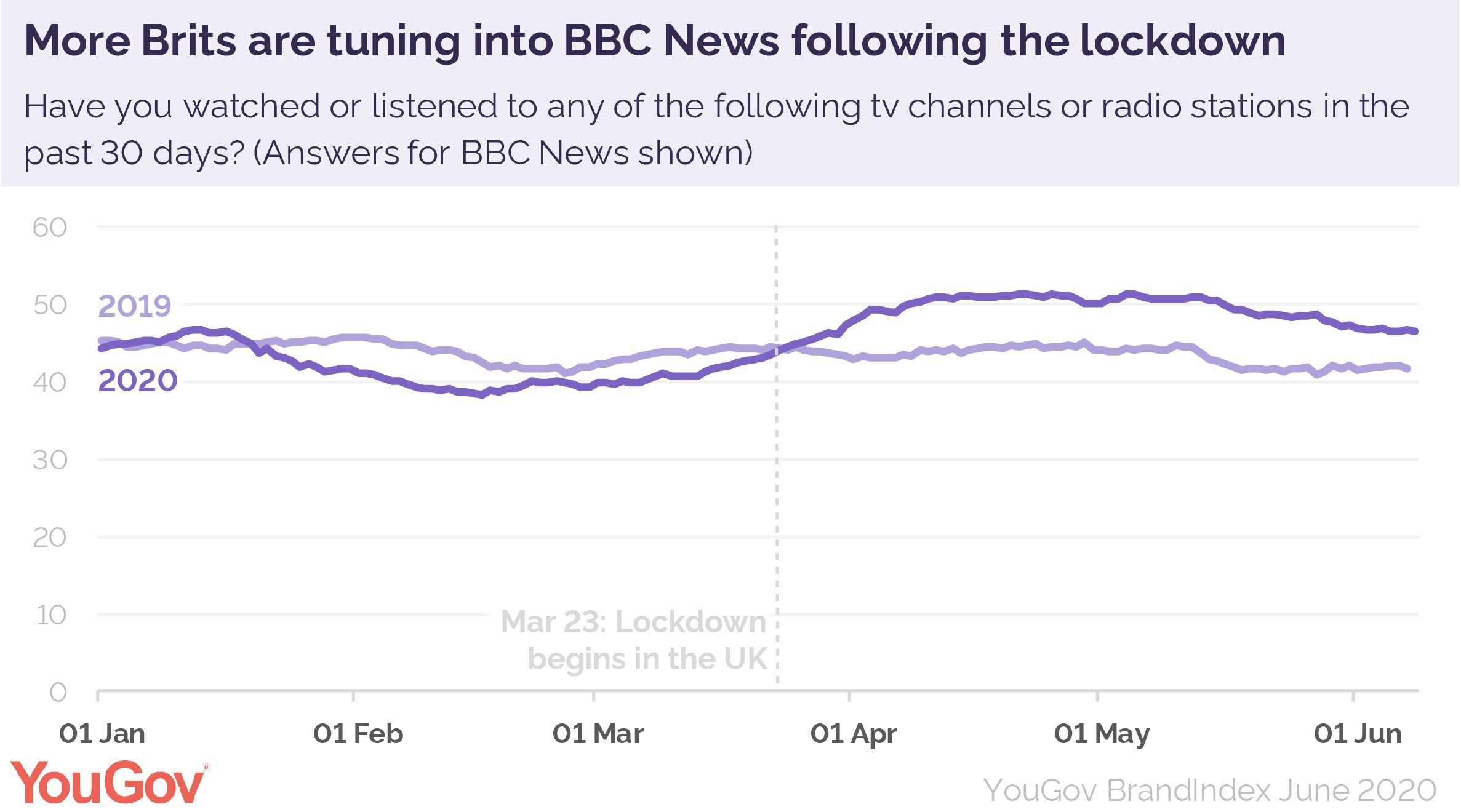
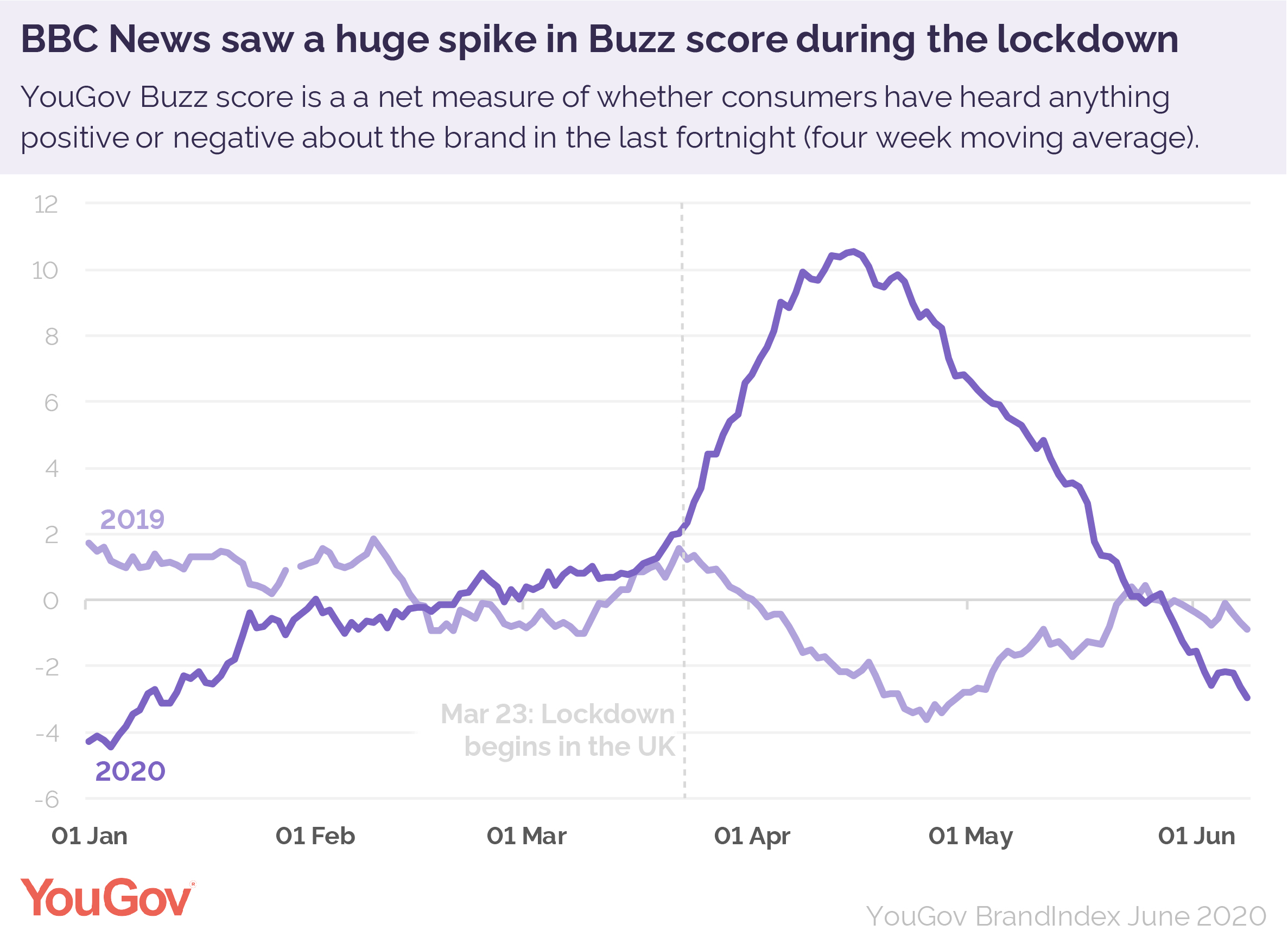 Click to enlarge
Click to enlarge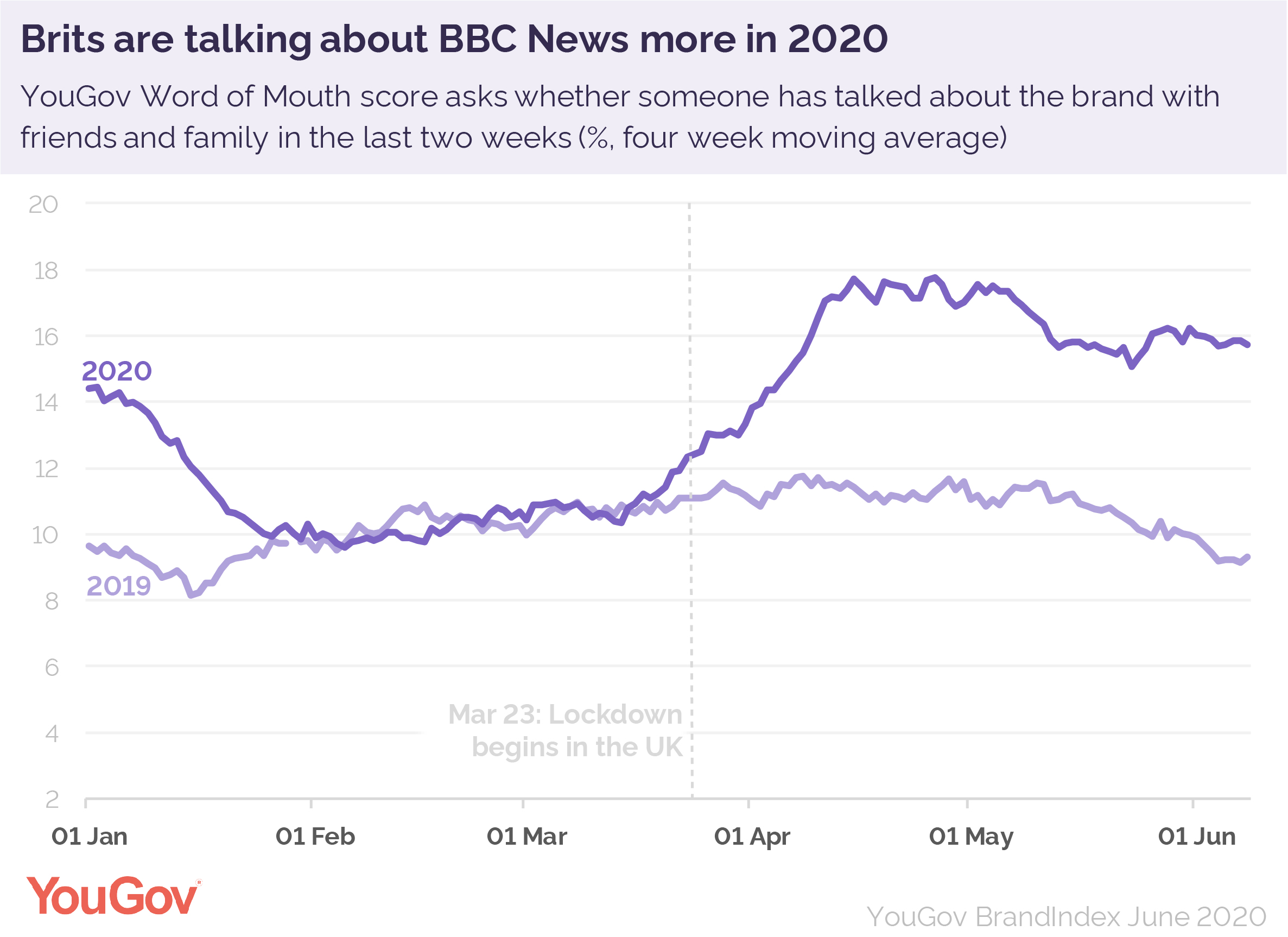 Click to enlarge
Click to enlarge